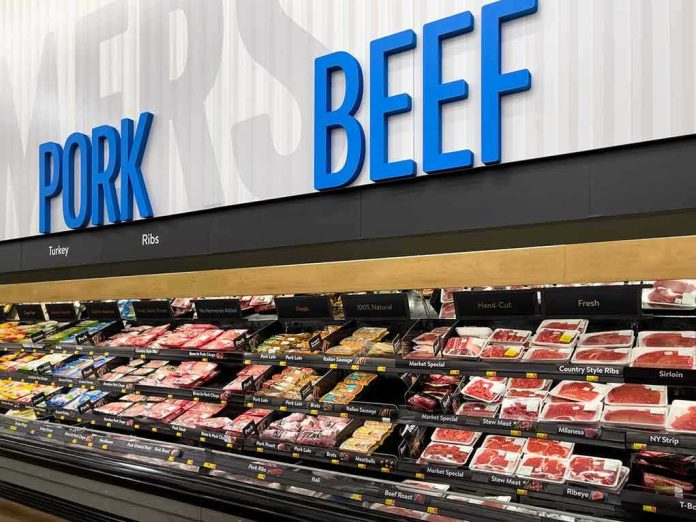
Is America’s dinner table under threat as China tightens its grip on the nation’s pork supply?
At a Glance
- Smithfield Foods, a major U.S. pork producer, was acquired by China’s WH Group in 2013.
- The acquisition has raised ongoing concerns about U.S. food security and foreign control over critical infrastructure.
- Recent charges against Chinese nationals for smuggling a biosecurity threat into the U.S. have reignited fears.
- Political and public debate continues over the implications of foreign ownership in the U.S. food industry.
Chinese Acquisition of Smithfield: A Cause for Concern?
In 2013, Smithfield Foods, a cornerstone of American agriculture and the world’s largest hog producer, was acquired by Shuanghui International Holdings Limited, now known as WH Group. This $4.7 billion transaction marked the largest-ever Chinese acquisition of a U.S. company. It was driven by China’s urgent need for high-quality pork and a desire to enhance food safety following a series of domestic food scandals that eroded public trust.
The acquisition raised eyebrows and concerns among U.S. lawmakers and the Committee on Foreign Investment in the United States (CFIUS). They feared that foreign control of critical infrastructure could pose national security risks. Despite these concerns, Smithfield has remained a U.S.-based company with its management and workforce intact, operating as a wholly owned subsidiary of the Chinese parent company. But the question remains: at what cost to American sovereignty and security?
The Impact on U.S. Food Security
Smithfield’s acquisition is not just a case of business as usual in the global market. It has profound implications for the U.S. food supply chain, a critical component of national security. While proponents argue that the deal has benefited U.S. agriculture by opening new markets and maintaining high standards, critics warn of the dangers of foreign control over essential supply chains. The fear is not unwarranted, as recent events have shown.
In July 2025, the U.S. Department of Justice charged two Chinese nationals with smuggling a scientifically classified potential agroterrorism fungus into the country. This incident has reignited concerns about biosecurity and the vulnerability of the U.S. food supply to foreign interference. While Smithfield operates under the guise of independence, the shadow of its Chinese ownership looms large over these troubling developments.
Ongoing Debate Over Foreign Ownership
The acquisition of Smithfield set a precedent for further Chinese investments in U.S. agriculture and food sectors. It has sparked a heated public debate about foreign ownership of American food assets. U.S. officials and experts continue to express concerns about the strategic implications of such ownership, especially in light of rising geopolitical tensions with China.
Smithfield’s management maintains that the company operates independently and upholds U.S. food safety standards. However, the reassurance does little to quell the fears of those who see the merger as a potential threat to the country’s food security and sovereignty. The stakes are high, and the debate is far from over as the nation grapples with the broader implications of this foreign acquisition.









